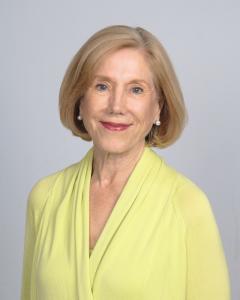If you’re dating in your 50s, the whole process of getting married has a different pace than it did in your 20s and 30s. With decades of life experience, relationships in this season are often shaped by clarity, intention, and a deeper understanding of what truly matters. So, how long should you date before getting married? Drawing on data from the past 23 years working as a psychotherapist and Emotionally Focused Therapy (EFT), I have worked with many couples who were contemplating this crucially important decision. This guide to the timing of marriage in your 50s is part evidence-based research, part stories taken from real life, part wisdom gained from my own private practice.
Love in your 50s isn’t about rushing to the altar—it’s about building a bond that feels like home, with enough time to trust and grow together. — Dr. Peggy Bolcoa
Why Timing Matters in Your 50s
Dating in your 50s isn’t just a chemistry match—there’s a compatibility factor, emotional security, and mutual intentions about where things are going. While younger couples hold the potential for relationship complexity, couples in their 50s often arrive at relationships with a complicated history: children, ex-spouses, jobs, perhaps a health issue. Entering a marriage without understanding all of the layers to the relationship can wear down a relationship; conversely, dating for too long might suggest that they are unwilling to commit or that you are on different timelines.
For my clients at my Costa Mesa practice, I have seen many couples develop very solid relationships, in large part due to their ability to have balance. “The aim is not to reach a magic number of months together,” I frequently say to my clients, “but to create a secure attachment where both partners feel seen and valued.” Research does support this; a 2018 study examined couples over the age of 50, and those who dated for 1–2 years before getting married were more satisfied with their marriages than couples who either married too quickly after dating or without any timeline to date indefinitely.
Key Factors Influencing Timing
- Life Stage: Are you blending families or planning retirement? These shape how quickly you integrate lives.
- Emotional Readiness: Healing from past relationships takes time, especially after divorce or loss.
- Shared Values: Alignment on finances, lifestyle, and spirituality becomes critical in your 50s.
- Online Dating: Many meet partners online, which can accelerate or complicate the timeline.
How Long Is Long Enough? The Data and My Experience
So, what’s the “right” amount of time? While there’s no one-size-fits-all answer, data offers a starting point. Some surveys found that adults over 50 typically dated for 12–24 months before engagement, with 18 months being the median for those who remarried. But numbers only tell part of the story.
In my practice, I’ve worked with couples who felt ready in under a year and others who needed three years to build trust. For example, one couple, John and Susan, both in their late 50s, came to me after dating for six months. John was eager to propose, but Susan, a divorcee, felt cautious. We employed EFT and learned about her fear of repeating patterns from their previous relationships. Eventually, after 18 months of dating and counseling, they became married and are now thriving and successful because they took the time to create a secure bond.
A Suggested Timeline: 12–24 Months
Based on my experience and research, here’s a general framework for dating in your 50s:
- 0–6 Months: Build connection, assess initial compatibility, and discuss core values (e.g., family, finances).
- 6–12 Months: Deepen emotional intimacy, meet each other’s families, and navigate challenges like long-distance or blended families.
- 12–24 Months: Test resilience through life stressors (e.g., career changes, health issues) and discuss marriage logistics.
- Beyond 24 Months: If you’re still unsure, explore underlying fears or misalignments, ideally with a therapist.
This timeline isn’t rigid. Some couples move faster, especially if they’ve known each other for years or share a strong cultural alignment. Others need more time, particularly if trust was broken in past relationships.
The Role of Online Dating in Your 50s
Online dating has transformed how people in their 50s meet, with platforms like SofiaDate, SakuraDate, and LatiDate catering specifically to older adults. A 2023 report from Pew Research Center noted that 17% of Americans over 50 have used online dating, and 12% found a long-term partner this way. But online connections can skew timelines.
I often tell clients, “Online dating can feel like a pressure cooker,” because you’re going much faster than you would in a traditional courtship as you’re swiping, chatting, and meeting all at breakneck speed! This quick speed at which you’re dating can lead to premature commitments or, alternatively, endless dating in search of “the one”. In my work with David and Minseo, an American-Korean couple who I met online, we discussed how taking things slow and building trust was going to be critical to their success as a couple. After dating for 22 months, David and Minseo married, all the while using video chat and meeting in person occasionally, amidst big cultural differences and large distances.
Tips for Online Daters
- Choose Reputable Platforms: Sites like SofiaDate and SakuraDate prioritize long-term relationships and offer robust verification. Learn options here.
- Be Clear About Intentions: State your goal—marriage, companionship, or casual dating—in your profile to attract aligned matches.
- Move Offline Thoughtfully: Aim to meet in person within 1–2 months of consistent communication to gauge real-world chemistry.
- Watch for Red Flags: If someone avoids video calls or rushes commitment, pause and reassess.

Challenges That Shape the Timeline
Dating in your 50s comes with hurdles that can stretch or shrink the path to marriage. Here are the most common ones I see in my practice, along with strategies to address them:
1. Blending Families
If you or your partner have adult children or grandchildren, merging families requires finesse. A 2020 study found that 65% of remarriages in later life involve stepchildren, which can complicate decisions about marriage timing.
Solution: Introduce partners to family gradually, ideally after 6–12 months. In sessions, I guide couples to discuss boundaries, like how to handle holidays or inheritance. “It’s not just about you two,” I remind them, “but how your love ripples outward.”
2. Financial Alignment
By your 50s, you’ve likely amassed assets, debts, or retirement plans. Disagreements over money are a top reason couples delay marriage. A 2022 Fidelity study revealed that 48% of couples over 50 argue about finances.
Solution: Have candid money talks by month six. Discuss prenups, shared expenses, and retirement goals. I often suggest consulting a financial advisor alongside therapy to align visions.
3. Health and Aging
Health concerns, from chronic conditions to caregiving responsibilities, can influence timing. One client, Linda, hesitated to marry her partner of two years because she feared burdening him with her arthritis.
Solution: Be transparent about health early on. By year one, share medical histories and discuss caregiving expectations. EFT helps couples frame these talks as acts of vulnerability, not weakness.
4. Emotional Baggage
Divorce, loss, or betrayal can make trust harder in your 50s. “I’ve seen clients freeze when marriage comes up,” I share, “because they’re scared of being hurt again.”
Solution: Use therapy to unpack past wounds. EFT is effective here: it helps partners create new, secure patterns. Most couples I work with need 6–12 months to rebuild trust before feeling ready for marriage.
When to Speed Up or Slow Down
Not every relationship follows the 12–24-month arc. Here’s how to know when to adjust:
Speed Up If…
- You’ve known each other for years (e.g., as friends or colleagues) and share a deep foundation.
- You’re aligned on major issues (finances, family, faith) and have navigated a significant stressor together.
- Both partners are emotionally secure and eager to commit.
Example: I worked with a couple, both widowed, who married after 10 months. Their shared grief and clarity about wanting companionship fast-tracked their bond.
Slow Down If…
- One partner is freshly divorced or grieving (allow at least a year post-loss for emotional clarity).
- You’re avoiding tough topics like money or family values.
- Trust issues or red flags (e.g., inconsistent communication) persist.
Example: A client, Mark, rushed to propose after eight months, ignoring his partner’s reluctance to blend finances. After therapy, they dated another year, addressed these gaps, and are now happily married.
My 5-Step Guide to Deciding When to Marry
Drawing from EFT and my 23 years of experience, here’s a practical guide to help you decide when to take the leap:
- Assess Emotional Connection: By month six, can you share fears and dreams openly? If not, work on vulnerability.
- Test Compatibility: By year one, live through a few conflicts (e.g., a canceled trip or family disagreement). How do you resolve them?
- Align on Logistics: By 12–18 months, discuss practicalities: where to live, how to handle finances, and health plans.
- Seek Feedback: Talk to trusted friends, family, or a therapist. I often ask couples, “What do your loved ones see that you might miss?”
- Trust Your Gut: If you feel secure and excited about a shared future, you’re likely ready. If doubt lingers, explore why.
Real-Life Success Stories
Stories from my practice illustrate how varied the process can be. Take Ellen and Tom, both 55, who met on SofiaDate. They dated for 14 months and used our sessions to navigate Tom’s adult daughter’s skepticism. By addressing her concerns head-on, they built a strong family unit and married last year.
Another couple, Maria and Raj, faced intercultural differences (she’s Cuban, he’s Indian). Online dating brought them together, but blending traditions took 26 months of intentional work. “Patience was our superpower,” Maria told me. Today, they celebrate both Diwali and Nochebuena with joy.
Conclusions from a Psychotherapist’s Lens
In your 50’s, a journey toward marriage is less about watching the clock and more about creating a home together. As a psychotherapist for 23 years, I’ve learned love at this stage is characterized by sincerity, patience, and growth together. Whether you meet online or through friends, aim for 12–24 months of dating to ensure emotional and practical alignment. Use tools like EFT to deepen your bond and address fears. As I tell my clients, “Marriage isn’t the finish line—it’s the start of a new adventure. Take the time to make it a secure one.”

